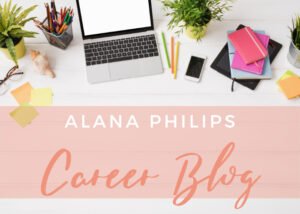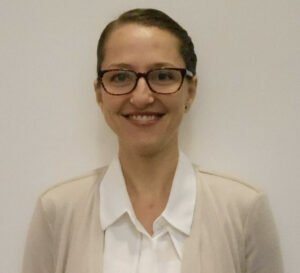
Meet Dr Alana Philips, Senior Medical Advisor for Contraception and Maternal Health at Organon ANZ – a healthcare company dedicated to women’s health. Here she talks about her career journey from academia to major crimes forensic biology to the pharmaceutical industry, unmet needs in women’s health, and not being pressured by society’s definition of success.

What is your current role and how did you get to be there?
I am the Senior Medical Advisor for Contraception and Maternal Health at Organon – a healthcare company dedicated to women’s health.
After completing my PhD, I made the decision to leave academia – not because I didn’t love it, but because most of my time was spent worrying about the stability and longevity of my job in research (given permanent positions are difficult to find and your ongoing employment is very much determined by acquisition of grants and other funding).
I had learnt so many skills during my undergraduate, honours and PhD that were transferrable to other industries, but I was uncertain as to which industry would be right for me.
I decided to try my hand at forensic biology. I was working in major crimes and dealt with serious assaults and murders. I am a real lover of true crime, so this was right up my alley! However, after a relatively short time, I became immune to the horror of these crimes, so I decided it was time to move on – this time into the pharmaceutical industry.
I was very hesitant to make the transition, especially since my experience was in basic research, not clinical research, and I didn’t have any idea about the inner workings of the pharmaceutical industry. Despite my lack of industry experience, I was given a chance and I started my first role as in medical science liaison. Shortly thereafter, I moved into a medical advisor role, senior medical advisor role, then went on to manage the medical affairs team. I then stepped out to have a couple of children and decided to take a couple of steps back in my career to enable me to work in a part-time capacity (to allow me to spend more time with my girls). After 7 years, I am back to a full-time position and working in an area that I am passionate about.
How does your work contribute to the field and/or overall health and wellbeing of the community?
I work with internal stakeholders to ensure that they are appropriately trained to discuss the relevant clinical data for the products in our portfolio, and that materials used in-field to educate the wider healthcare community are compliant with our internal SOPs and external regulations and industry codes.
I collaborate on cross-functional policy projects to raise awareness of the unmet needs that exist in women’s health, such as unintended pregnancy, and support implementation of activities aimed at addressing these needs.
I liaise with scientific leaders and other healthcare professionals through scientific exchange – sharing clinical data on relevant products, as well as any developments/advancements in the reproductive and maternal health therapeutic landscapes – bringing any insights gained from these engagements back to the wider organisation to help support our strategic objectives. I subsequently work with these scientific leaders to address these gaps through investigator-initiated research, journal publications, educational grants, conference attendance and poster/oral presentations, etc., with the aim of having a positive impact on patients’ lives.
What is a project you would love to get off the ground or a skill you would like to develop, if you had the opportunity?
I am technologically challenged and would love to be more tech savvy so that I can edit videos, build websites, create SharePoint sites, etc.
What are your loves outside of work?
My loves outside work are many and varied. However, none are more important than my partner and children. I am a lucky mum to two girls, aged 7 and 3 – my children bring unadulterated joy and enthusiasm to my life. They are a large part of the reason why I go to work every day and strive towards achieving equitable access to women’s health for all Australian women and girls.
And I love sewing! It is a new-found passion that was thrust upon me when my partner decided to buy me a sewing machine for my 40th birthday (having said that, I had no idea how to sew, what to buy or where to begin! Thank goodness for YouTube). I am now the maker of quilts, aprons, skirts, dolls clothes, bedding, scrunchies, etc.
What is one piece of advice you could pass onto others following their own career in health and medical research sector?
This is your career, your journey and there are many ways to develop and learn. Sometimes we must take a sideways step to reach greater heights in our careers, take time out, or a step back.
Try not to be pressured by society’s definition of ‘success’. None of us are making it out of here alive, so do what makes you happy in both your professional and personal lives.
.
